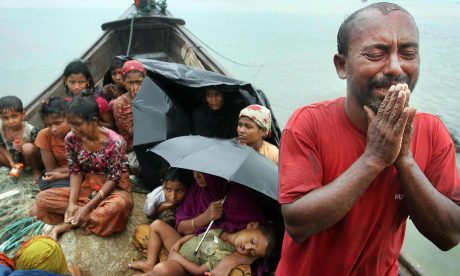Myanmar’s Rohingya crisis has hit the headlines in recent weeks due to an extraordinary number of Rohingya refugees fleeing Myanmar into Bangladesh.
It is estimated that in less than three weeks, up to 400,000 Rohingya refugees have fled Myanmar.
They are fleeing mass human rights violations and atrocities, including: the burning of villages and crops, using petrol and rocket launchers; executions by shooting, stabbing, beating or burning; beatings; and sexual violence.
But the Rohingya refugee crisis is not new. For decades, the Rohingya have been persecuted in Myanmar, with almost one million fleeing Myanmar since the 1970s.
Previous waves of displacement and return have been marked by violence and growing suspicion towards Rohingya by the Rakhine Buddhists and the national (military and civilian) governments.
The crimes being committed in the past weeks against the Rohingya are also not unusual.
They have only escalated in intensity and number, with the perpetrators no doubt spurred by the impunity with which they have been able to commit such atrocities for so long.
UN officials such as the Secretary General and the High Commissioner for Human Rights have called the current situation “ethnic cleansing.”
The UN has avoided the term “genocide” – however, it is genocide that is taking place. Myanmar’s military government has systematically sought and acted to remove the Rohingya minority from Myanmar and overall, from existence.
Rohingya are a minority group living in Rakhine state of Myanmar, located on the western coast and along the border with Bangladesh and close to India.
Rohingya are referred to as “Bengali” – a derogatory term – and, despite evidence of their residence in Myanmar for centuries, are denied citizenship and the participatory rights that come with that privilege such as participating in the public service.
Rohingya’s freedom of movement is restricted (they are even herded into detention camps and ghettos), their employment rights and options severely limited, and they are denied access to food, healthcare and education.
In addition, long-term mass violence has been carried out, including instances of organised massacres accompanied by sexual violence. Continue reading
Sources
- ABC Religion & Ethics, article by Gerhard Hoffstaedter and Melanie O’Brien.
- Image: Kenn Orphan
